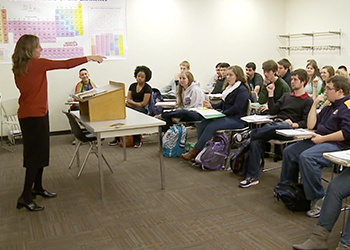Associate Professor
History
J. Patrick Mullins is a cultural and intellectual historian of the anglophone Atlantic World, focusing on America and England over the long eighteenth century. His work concentrates on the ways in which memories of past wars and revolutions help to inspire future wars and revolutions through the media of visual, material, print, and performative culture.
Dr. Mullins is Marquette’s Public History Director, advising the graduate and undergraduate Minor in Public History and coordinating the History Internship Program. A practicing public historian, he volunteers as the Exhibit Research Director for the Ray Bradbury Experience Museum and serves as project manager for his students’ work on museum exhibits, documentary films, historic preservation research, and websites in collaboration with museums, historical societies, and other community partners.
Education
Ph.D., University of Kentucky, 2005
Courses Taught
Dr. Mullins teaches regularly seminars on the Early Modern Atlantic World, Public History, and Applied History, as well as undergraduate and graduate courses on cultural memory of war and revolution in America and Britain during the long eighteenth century.
Research Interests
Dr. Mullins has wide ranging scholarly interests, but his research focuses on the cultural and intellectual origins of the American Revolution in America and England, 1745-1776.
His first book, Father of Liberty: Jonathan Mayhew and the Principles of the American Revolution (University Press of Kansas, 2017), is the first in-depth examination of the political thought and activism of Boston Congregational clergyman Jonathan Mayhew (1720-1766). It provides a case-study in the role of New England clergy in promoting pro-resistance political culture through sermons and pamphlets in the decades before the Revolutionary War.
His second monograph (in progress) is called Killing Kings in America: Violence, Art, and Memory in the Transatlantic American Revolution. A study of the cultural origins of the Revolution, it focuses on the ways in which Americans and Britons advocated resistance or obedience to royal authority through memorialization of England’s seventeenth-century civil war, regicide, and commonwealth.
In preparation of Killing Kings and related articles, Dr. Mullins is studying Anglo-American memory through such cultural forms as ritualized protests during the Stamp Act Crisis, Anglican sermons on the execution of King Charles I, paintings by John Singleton Copley and Charles Willson Peale, engraved prints by Paul Revere and Giovanni Batista Cipriani, the histories of Catherine Macaulay and political plays of Mercy Otis Warren, and the creation (and destruction) of monuments by Joseph Wilton. Dr. Mullins has two chapters on Mercy Otis Warren’s political drama forthcoming in edited volumes.
Specialization
The British Atlantic World, Public History, Visual and Material Culture, and Memory
Publications
Father of Liberty: Jonathan Mayhew and the Principles of the American Revolution (Lawrence: University Press of Kansas, 2017).
“Yankee Continentalism: The Provincial Roots of John Adams’s Vision for American Union, 1755-1776,” Revolutionary Prophecies: The Founders and America’s Future, ed. Peter Onuf and Robert M. S. McDonald (Charlottesville: University of Virginia Press, 2021), 51-81, https://www.upress.virginia.edu/title/5617
“‘That great Sacrifice was made, through sad Necessity’: Charles Willson Peale’s William Pitt and the Emblemology of Tyrannicide,” Age of Revolutions (January 2021), https://ageofrevolutions.com/2021/01/11/that-great- sacrifice-was-made-through-sad-necessity-charles-willson-peales- william-pitt-and-the-emblemology-of-tyrannicide/
“Remembrance of Death, Family, and Place in Ray Bradbury’s ‘Homecoming’,” Exploring the Horror of Supernatural Fiction: Ray Bradbury’s Elliott Family, ed. Miranda Corcoran and Steve Gronert Ellerhoff (New York and London: Routledge, 2020), 135-147, https://www.routledge.com/Exploring-the-Horror-of-Supernatural-Fiction-Ray-Bradburys-Elliott-Family/Corcoran-Ellerhoff/p/book/9780367210946
“The Sermon That Didn’t Start the Revolution: Jonathan Mayhew’s Role in the Boston Stamp Act Riots,” Community Without Consent: New Perspectives on the Stamp Act, ed. Zachary McLeod Hutchins (Hanover, N.H.: Dartmouth College Press, 2016), 3-35, https://www.upne.com/1611688818.html
“‘A Kind of War, Tho’ Hitherto an Un-Bloody One’: Jonathan Mayhew, Francis Bernard, and the Indian Affair,” Massachusetts Historical Review, No. 11 (2009): 27-56, http://www.masshist.org/beehiveblog/2009/10/mhr-volume-11-available/



